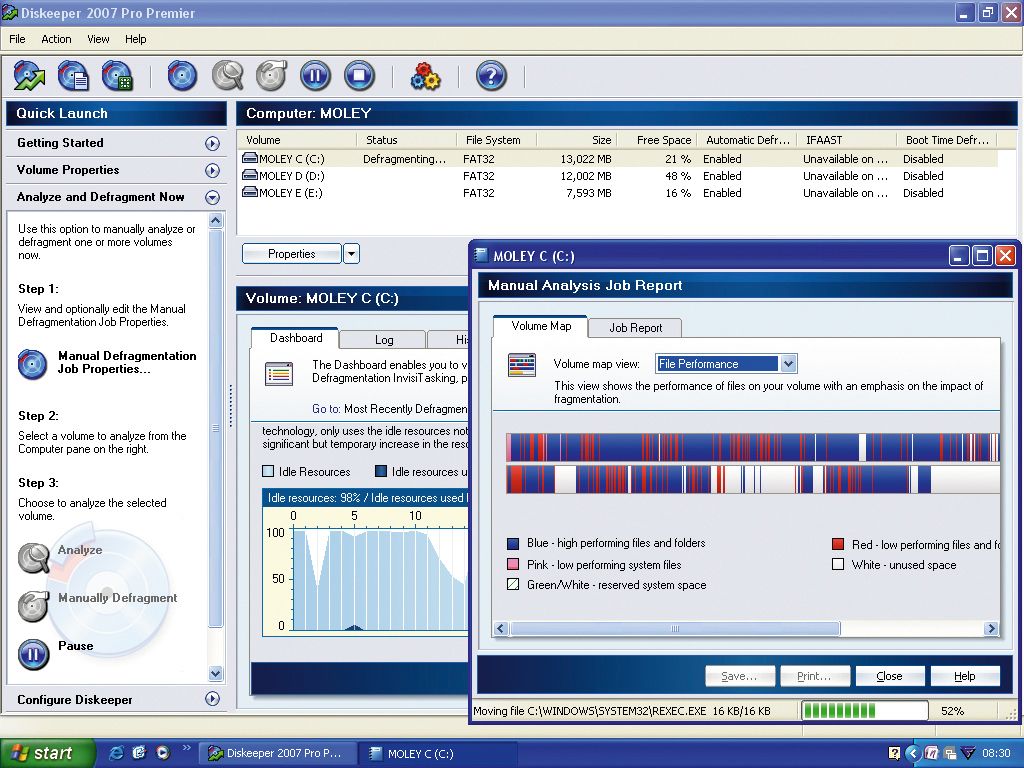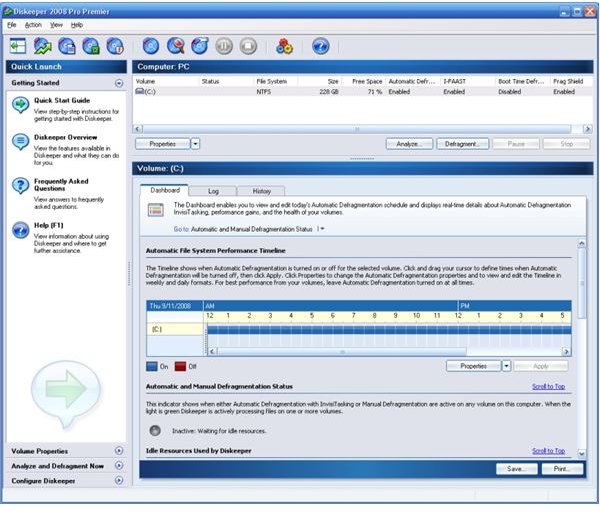

- #DISKKEEPER PRO REVIEWS SOFTWARE FOR PC#
- #DISKKEEPER PRO REVIEWS SOFTWARE#
- #DISKKEEPER PRO REVIEWS PC#
- #DISKKEEPER PRO REVIEWS PLUS#
- #DISKKEEPER PRO REVIEWS DOWNLOAD#
I use and recommend easycleaner for the registry.
#DISKKEEPER PRO REVIEWS PC#
If you are not doing this then the pc is laboring under a messy and dirty system, and has to run more programs than you need to. Otherwise you are just going to fill up hard drv space. When throwing out your discard pics you have to be utterly ruthless rpt ruthless rpt ruthless.

#DISKKEEPER PRO REVIEWS DOWNLOAD#
When you download the pics to the pc, throw out the duds, either bad from a technical point of view or bad in composition. It is not necessary to keep every pic the user has ever shot. I have 2 more ext hdr drvs to store data on. The only pics on my c drv are the ones that I am currently working on.
#DISKKEEPER PRO REVIEWS PLUS#
Plus another 500gb drv to backup the first. I have a 500gb drv just for storing my pics. If you have the c drv over 85% get some data off it. The drv has to have room to access programs, do the paging file, and defrag. No hrd drv should be running with over 85% full. it also removes programs that have a completely broken uninstaller. you run it first, it shifts to the program in question uninstaller, then after that runs it tell you what the uninstaller left behind and do you want to remove it? believe me it works. the program removes everything rpt everything. for any debris left by the program uninstaller you can use the program Your Uninstaller 2008. you can uninstall any programs that you do not wish via the control panel/addremove programs. also go to start and right click click explore and under user names/start menu/programs/startup right and drag all unneeded programs out of the startup folders check all startup folders(i have a folder labeled startup on my desktop where i put the stuff i have dragged out of the startup folders). this means going to msconfig via start/run and selecting the startup tab then you uncheck what you wish(be carefull you have to know what you are doing here some of that stuff your pc needs. make sure ALL unneeded programs are not running on startup. Note wise has a free disk cleaner as wellas a a registry cleaner that work great, they also have the paid versions. this includes defragging, antispyware sweeps(do not let the antispyware run all the time, it just slows down your pc), the program window washer(or something like it, to dump all unneeded files), a good registry cleaner(if you have never used one, the junk builds up in the registry from all the installs and uninstalls you have done ever, plus any pc problems that you ever had), consider running chkdsk R on your c drv(once a week or once a month). have and be using a pc maintenance routine. you should already be doing the following. It is not that you have to make the programs run faster, it is your pc that has to run faster. do you have and use a pc maintaince routine? pcs are just like cars, you have to maintain them to keep going at max speed and perfromance. suggest thst your slow pc problems lie elseware. in fact, i do not know when the program is even running. I use deskeeper 2009 pro premier and there is no penalty when it is in use. In many ways Unix has the legacy of NTFS to thank for the development of journalled filesystems like ext3 and ext4. The fears about corrupting your Unix system by not shutting it down properly never applied to NTFS. NTFS will live very happily in a GPT-partitioned disk with no practical boot size restrictions.įrom the very beginning NTFS was a very robust journalling file system. There are some size limitations on boot partitions, but those are limitations of the BIOS and the MBR partition scheme, not of NTFS. If you're referring to the idea that you don't need to split a single physical drive up into, for example, "C:" and "D:" partitions with ext3 or ext4, well - you don't need to do that with NTFS, either. Not sure what you mean by "don't need partitioning" but file systems, even those in Unix, live inside disk partitions, so every file system needs a disk that has at at least one partition on it. It requires 73.6MB of free space for installation.Compared to modern file systems like ext3 and ext4 which don't need partitioning, NTFS has run its course. This disk defragmenter works with Windows 7, 8 and 10 (all editions), and this Home edition allows you to use the program for up to three computers. It also monitors system performance and can give you a summary of the data it gathered while monitoring. It optimizes input and output (I/O) performance on these drives so they don’t overwork. While traditional disk defragmentation could damage these modern storage devices, Diskeeper uses another method to increase speeds.
#DISKKEEPER PRO REVIEWS SOFTWARE#
This software also optimizes the performance of solid-state drives.
#DISKKEEPER PRO REVIEWS SOFTWARE FOR PC#
Best home computers 2022: Find all the best desktop PCs and Macsīest DVD ripper software 2022: DVD copying appsīest repair software for PC 2022: read this before opening up your PC caseīest tablets 2022: the best of iPad, Android, Samsung and more


 0 kommentar(er)
0 kommentar(er)
